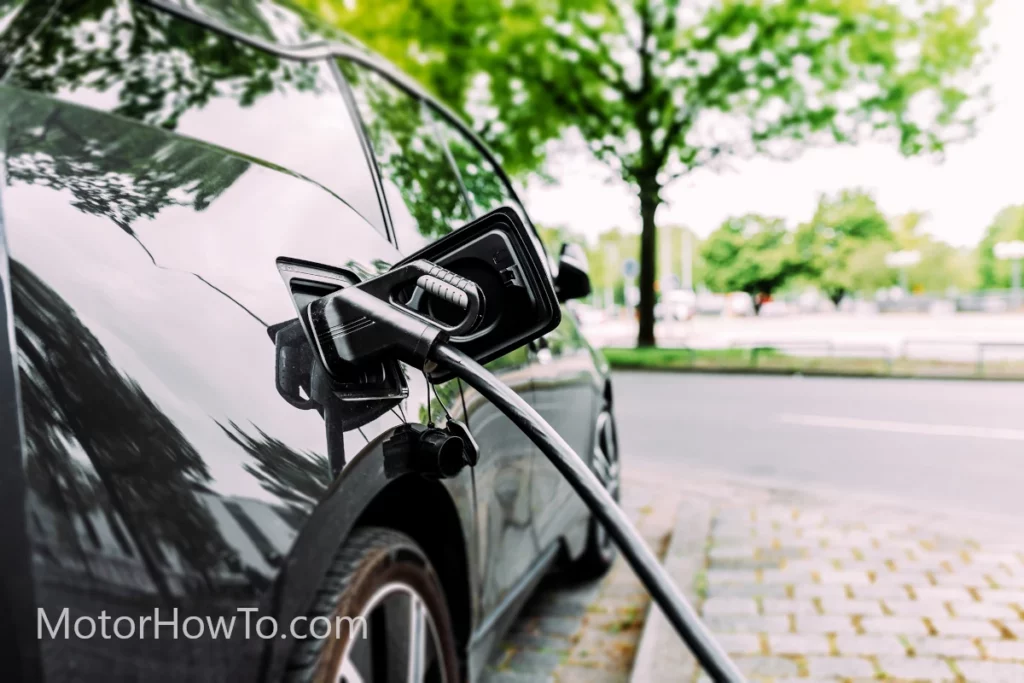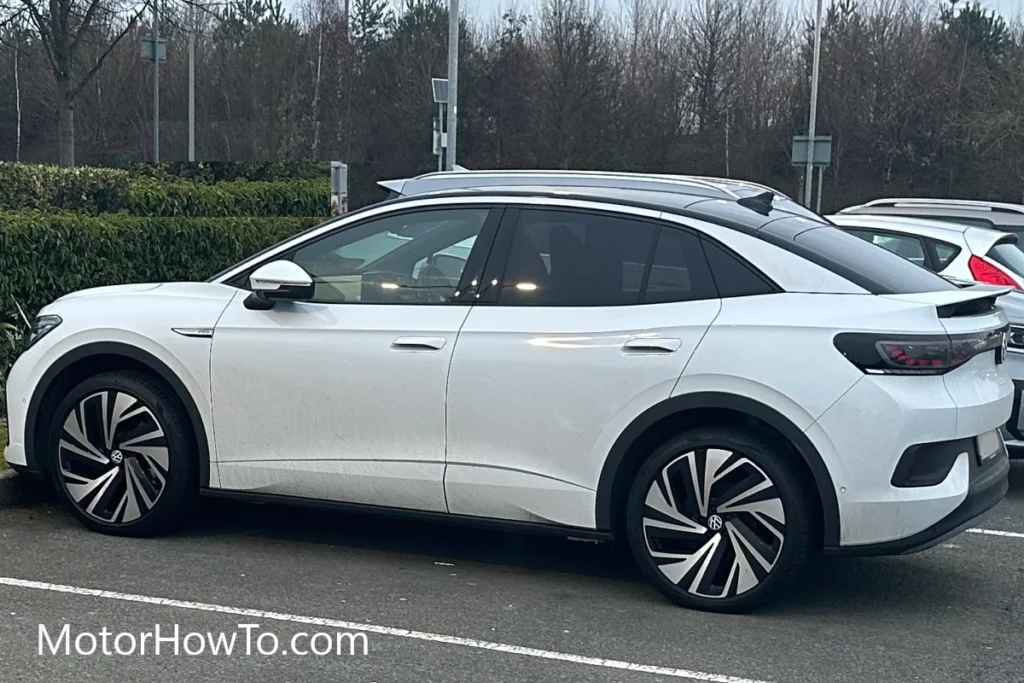The rise of electric vehicles (EVs) has been a game-changer in transportation, offering a clean and sustainable alternative to traditional gasoline-powered vehicles.
However, the cost of EVs can still be a major barrier for many people, particularly those on a tight budget. Despite the benefits of owning an EV, such as lower fuel costs and reduced environmental impact, many are left asking, “What if I can’t afford an electric car?“
If people cannot afford an electric car, they can look into other options, such as public transportation, carpooling, or renting a car. Additionally, many states offer incentives such as tax credits and rebates for purchasing electric vehicles, which can make them more affordable.

The cost of EVs, particularly high-end models, can be several times higher than traditional gasoline vehicles. While the long-term savings on fuel and maintenance costs can offset the initial investment, the upfront cost is still a major concern for many consumers.
With the ongoing trend towards EVs and the increasing focus on reducing carbon emissions, the question of affordability has become more pressing. Addressing this issue will be crucial for the widespread adoption of EVs and for achieving a cleaner and more sustainable future.
Related:
- If You Can’t Afford Gas Buy An Electric Car (Explained)
- What Is The Toughest Part Of Building An Electric Car? (Explained)
- Do Tesla Brake Lights Come On During Regenerative Braking? (Answered)
Average Income Of Electric Car Owners
The average income of electric car (EV) owners can vary greatly depending on several factors, such as the type of EV, the country of purchase, and the owner’s financial situation.
In general, however, EV owners tend to have higher incomes compared to the general population.
A survey conducted in the United States found that the median household income of EV owners was around $100,000, while the national median household income was around $60,000.
In some countries, such as Norway, where EVs have high market penetration, the average income of EV owners is lower than in the United States.
This can be attributed to the strong government incentives and subsidies, which make EVs more accessible and affordable for a wider range of consumers.
In countries with less developed markets, the average income of EV owners may be even higher, as the cost of EVs is still relatively high and may only be affordable for those with higher incomes.
It’s important to note that the average income of EV owners does not necessarily reflect the financial viability of owning an EV for people with lower incomes.
The upfront cost of EVs can still be a major barrier for many individuals, even if the long-term savings on fuel and maintenance costs can offset the initial investment.
What Is The Demographic Of EV Owners?
The demographic of electric vehicle (EV) owners can vary greatly depending on several factors, such as the type of EV, the country of purchase, and the owner’s personal preferences.
However, studies have shown that EV owners tend to be relatively well-educated, with higher incomes and a strong environmental consciousness.
A survey conducted in the United States found that most EV owners are college-educated and have household incomes above $100,000.
EV ownership is also heavily influenced by geographic factors, with higher concentrations of EV owners in urban areas and coastal regions where there is better access to charging infrastructure and a greater awareness of environmental issues.
The demographic of EV owners are constantly evolving as technology improves and becomes more widely adopted.
The age of EV owners can also vary widely, with some older individuals choosing EVs for their lower maintenance costs and better driving experience.
In comparison, younger individuals may choose EVs for their eco-friendliness and cutting-edge technology.
Why Are Electric Cars Unaffordable?
Electric cars (EVs) are often considered unaffordable due to the high upfront purchase cost.
The cost of EVs, particularly high-end models, can be several times higher than traditional gasoline vehicles.
This can be attributed to several factors, such as the high cost of the battery and other advanced technology used in EVs and the relatively low production volume, which results in economies of scale that still need to be achieved.
Another factor contributing to the high cost of EVs is the need for charging infrastructure in many regions.
This makes it difficult and time-consuming to charge an EV, which can discourage potential buyers.
Additionally, the cost of producing charging infrastructure can be high, and the need for standardization in charging systems makes it difficult to establish a wide network of charging stations.
Improving charging infrastructure and making EVs more accessible and affordable will be crucial for the widespread adoption of EVs and for achieving the goals of a cleaner and more sustainable future.
Will EV Become Cheaper In The Future?
Due to Electric vehicles (EVs) environmental benefits, cost savings, and convenience, they have become increasingly popular in recent years.
However, these vehicles can still be expensive, as the battery and other components can be quite high.
The good news is that the cost of EVs is expected to decrease as the technology improves and more efficient batteries become available.
Additionally, many states offer incentives such as tax credits and rebates for purchasing electric vehicles, which can help make them more affordable.
Additionally, the cost of charging infrastructure is also expected to decrease in the future, further reducing the cost of owning an EV.
As these costs come down, EVs will likely become more affordable and accessible to more people.
Will Most Cars Be Electric In 10 Years?
The widespread adoption of electric cars (EVs) is expected to continue in the coming years, driven by increasing environmental awareness, declining battery costs, and improvements in charging infrastructure.
Government incentives and regulations aimed at reducing carbon emissions and promoting clean energy are also expected to play a significant role in the EV market’s growth.
However, the exact timeline for when most cars will be electric is uncertain.
It will depend on several factors, such as consumer preferences, the availability of charging infrastructure, and the overall state of the global economy.
Some experts predict that EVs could make up a significant portion of the global car market within the next ten years, while others are more cautious in their projections.
Nevertheless, it is clear that the trend toward EVs is accelerating and will play a key role in shaping the future of transportation.
How Many Years Will EV Last?
The lifespan of electric vehicles (EVs) can vary significantly depending on the type of vehicle and its usage.
Generally, EVs can last for at least 8 to 10 years, but some models have been known to last for much longer.
Additionally, the battery of an EV can be expected to last for around 8 to 10 years, depending on usage and environmental factors.
The lifespan of an EV can also be affected by regular maintenance and proper charging.
Regularly checking the battery, tires, and other components can help extend the lifespan of an EV and ensure that it performs reliably and safely.
Additionally, using the correct charging methods and avoiding overcharging the battery can help extend its lifespan.
An EV can be expected to last for at least 8 to 10 years with proper maintenance and use.
Conclusion
The rise of electric vehicles (EVs) has been a major shift in the transportation industry, but the cost of EVs still remains a barrier for many consumers.
To address this issue, several options exist, including public transportation, carpooling, and incentives such as tax credits and rebates.
The average income of EV owners tends to be higher compared to the general population, with well-educated and environmentally conscious individuals making up a significant portion of EV owners.
The demographic of EV owners is constantly evolving, with older individuals and those in urban areas showing a strong interest in EVs.
The high cost of EVs is attributed to factors such as the high cost of the battery and charging infrastructure, but improvements in technology and charging infrastructure are expected to make EVs more affordable in the future.
The widespread adoption of EVs is expected to continue in the coming years, but the exact timeline for when most cars will be electric is uncertain.
Sources
Electric Vehicles Are Out of Reach for Most US Consumers
Taxing the Poor to Pay for Your Electric Car
Demographic Analysis – Vehicle Owners
Why Are Electric Cars So Expensive?
When Will the Price of Electric Cars Come Down?



